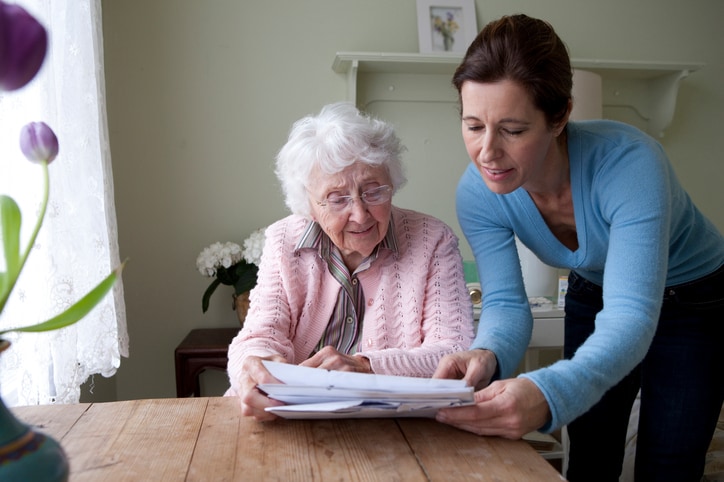How to be prepared for a crisis.
We hope we’ll never need the information, but if there is an emergency with your aged parent or relative, having this checklist readily available will make your life easier.
Health emergencies with our elders can often become complicated by the sheer number of medications, doctors, insurance coverage and degree of chronic or acute illness(es) involved. Below is a comprehensive list of information and documents to keep on hand, so you’ll be prepared.
Need more help? Find a caregiver for your loved one
Aged Care Emergency Checklist
- Doctors’ names, their specialties and phone numbers.
- List of all medications being taken and what the prescriptions are for (be sure to keep the information updated — as the medications may change frequently).
- Prescription plans, identification numbers and health insurance, if they have it.
- Enduring power of attorney — a legal document that gives someone the authority to handle legal and financial issues if your parent or aged relative becomes incapacitated.
- Medical power of attorney — a legal document that gives someone the authority to make medical decisions for your parent or aged relative.
- Anticipatory direction — a legal document that outlines your aged parent’s or relative’s wishes about resuscitation orders. Do you know their wishes? Knowing this information before a crisis can be crucial to the way in which you handle the crisis.
- Basic financial records — a list of assets, account numbers, names and contact information for financial advisors or bank representative.
- Names and addresses of people to notify in case of an emergency — such as children, grandchildren, close friends and neighbours who might be able to help out.
- Names and contact information for local clergy, if your parent or aged relative has a preferred religious affiliation.
This information should be placed in the home in an easy-to-find location, such as near the phone in the kitchen, or in another commonly used area, as well as given to another family member, caregiver or friend who agrees to keep a copy of the information for you.
